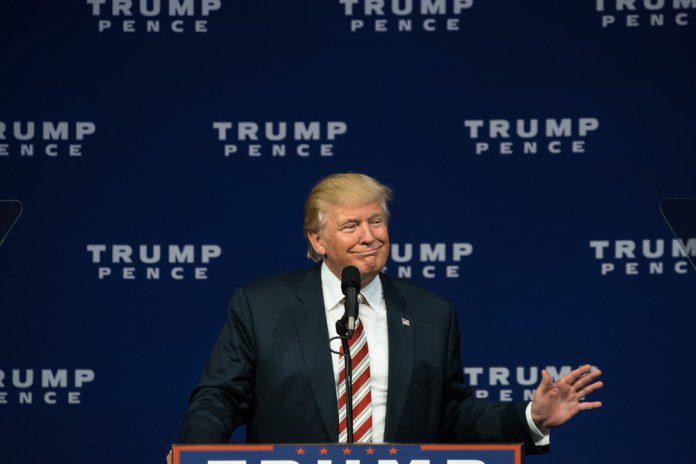Despite Trump’s branding of the former Secretary of State as “crooked Hillary” through-out the duration of his presidential campaign, recent comments made by the President-elect on Tuesday suggest a softened approach.
Clinton’s mishandling of her email server during her time as Secretary of State overshadowed her candidacy, with many voters failing to view Mrs. Clinton as “trustworthy”.
Mr Trump continually used this to his advantage through-out the course of the election race, even stating during a televised presidential debate that if he was in power, Hillary would “be in jail”.
However, during a press conference hosted by the New York Times, which has been openly critical of Mr Trump’s candidacy, The President-elect has appeared to adjust his approach considerably.
According to tweets by Mike Grynbaum, a New York Times correspondent at the event, Trump stated:
Trump is pressed if he has definitively ruled out prosecuting Hillary Clinton. “It’s just not something that I feel very strongly about.”
— Mike Grynbaum (@grynbaum) November 22, 2016
“I don’t want to hurt the Clintons, I really don’t. She went through a lot and suffered greatly in many different ways.”
— Mike Grynbaum (@grynbaum) November 22, 2016
Mrs Clinton is not the only prominent Democrat individual who the businessman has recently appeared to modify his opinions on. When asked about his meeting with President Obama, admitted:
“I didn’t know if I’d like him. I probably thought that maybe I wouldn’t, but I did. I really enjoyed him a lot.”
This contrasts earlier stances adopted by Mr Trump, having been a prominent proponent of the “birther” movement, which questioned Mr Obama’s American citizenship – despite having been born in the US state of Hawaii. According to Section I Article II of the U.S constitution, a foreign national cannot hold the Office of the Presidency.
During the course of the campaign, Mr Trump attempted to shift away from association with the claims, asserting that:
“Hillary Clinton and her campaign of 2008 started the birther controversy.”
Mr Trump has been consistently negative about President Obama, taking aim on a variety of issues prior to his election, even questioning the legitimacy of his predecessor’s critically acclaimed memoir.
In an interview in 2011, the future President stated:
“I think somebody else had a lot to do with that book. I think he wrote the second book, which was certainly not a masterpiece. I’m very good at books, and it certainly wasn’t a masterpiece.”
Mr Trump himself drafted in ghost writer Tony Schwartz for assistance with his 1987 New York Times Best-Selling Memoir ‘The Art of The Deal’. Mr Schwartz has since spoken out against Trump’s controversial candidacy.
In the weeks following his shock victory, Mr Trump has appeared to soften his rhetoric on many of the contentious stances he pursued during the election race – these include a reversal of denials over climate change, as well as his aforementioned attitudes towards President Obama and Secretary Clinton.
These appear to be considered attempts by the controversial Republican to appear more moderate – and presidential. Given the highly divided electorate that this election has exposed, mitigation of Mr Trump’s far-right approach is a necessity step towards assuming office.
In the months preceding the inauguration ceremony in January, all eyes remain on Mr Trump for some inclination as to what his policy agenda may entail for the U.S.

